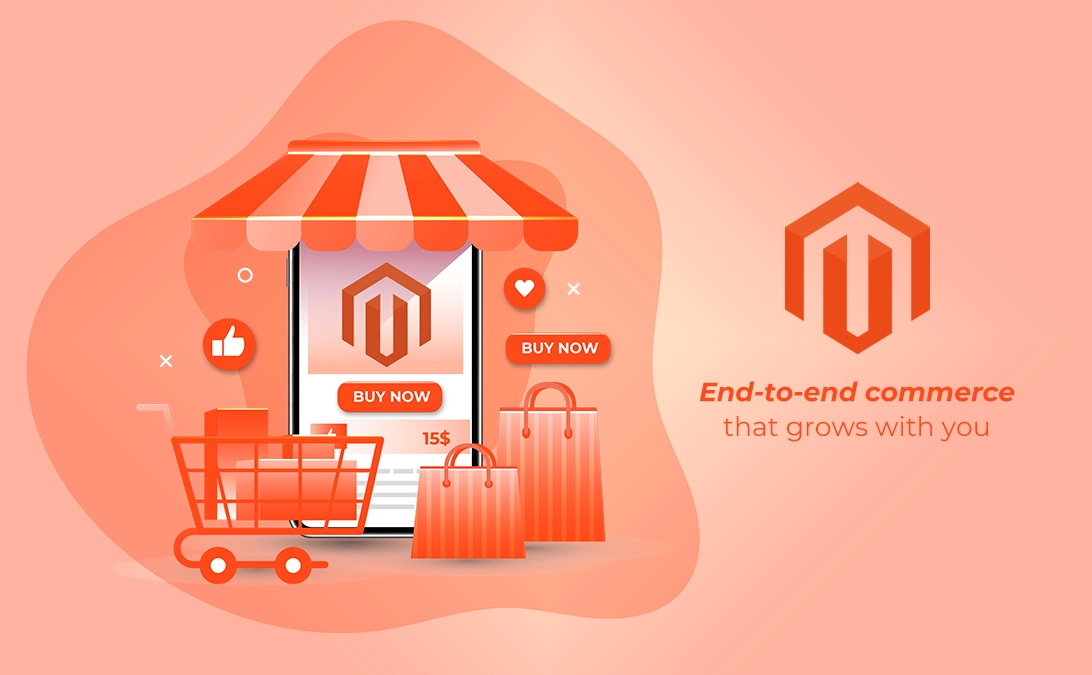Struggling to find the best B2B ecommerce platforms? We unveil the best options for businesses in 2024. Compare features, pricing and find your perfect fit! Unlock the Secrets at the End!
In today’s digital age, B2B eCommerce platforms have become a necessity for businesses looking to stay competitive and drive sales. With the rise of digital commerce, B2B companies are now expected to provide a seamless online buying experience for their customers.
But with so many options available, how do you choose the best B2B eCommerce platform for your business? In this article, we’ll unveil the top B2B eCommerce platforms and discuss how they can elevate your sales.
Why B2B eCommerce Platforms Are Essential for Your Business
Before we dive into the best B2B eCommerce platforms, let’s first understand why they are essential for your business. In today’s digital age, B2B buyers expect a seamless and convenient online experience, just like B2C consumers. A B2B eCommerce platform can provide exactly that.
Table of Contents
- 1Why B2B eCommerce Platforms Are Essential for Your Business
- 2Top B2B eCommerce Platforms
- 3How B2B eCommerce Platforms Can Elevate Your Sales
- 4Choosing the Right B2B eCommerce Platform for Your Business
- 5How Does B2B Ecommerce Work?
- 6Essential Features for B2B Success
- 6.1Address Specific B2B Needs
- 6.2Bulk Ordering & Quoting
- 6.3Bulk Ordering:
- 6.4Quoting:
- 6.5Negotiation & Approval Workflows
- 6.6Negotiation:
- 6.7Approval Workflows:
- 6.8Payment Options Tailored for B2B
- 6.9Customer Relationship Management (CRM) Integration
- 6.10Benefits of CRM Integration:
- 6.11Enterprise Resource Planning (ERP) Integration
- 7Conclusion
Meeting Customer Expectations

In today’s digital world, customers expect a seamless online buying experience, regardless of whether they are purchasing for personal or business use. B2B eCommerce platforms allow businesses to meet these expectations by providing a user-friendly and efficient online buying process.
Increased Efficiency and Cost Savings
By automating the ordering process, B2B eCommerce platforms can significantly increase efficiency and save businesses time and money. With features such as self-service portals, customers can easily place orders, track shipments, and manage their accounts without the need for manual assistance from sales representatives.
Global Reach
With a B2B eCommerce platform, businesses can expand their reach beyond their local market and tap into a global customer base. This allows for increased sales opportunities and growth potential.
Top B2B eCommerce Platforms
Now that we understand the importance of B2B eCommerce platforms, let’s take a look at the top options available.
Shopify Plus
Shopify Plus is a popular choice for B2B businesses looking for a scalable and customizable eCommerce platform. With features such as multi-channel selling, wholesale pricing, and advanced analytics, Shopify Plus allows businesses to create a personalized and efficient buying experience for their customers.
Magento Commerce

Magento Commerce is a highly customizable and feature-rich B2B eCommerce platform. With its open-source platform, businesses have the flexibility to create a unique online store that meets their specific needs. Magento Commerce also offers advanced B2B features such as custom pricing, bulk ordering, and customer-specific catalogs.
BigCommerce B2B
BigCommerce B2B is a comprehensive B2B eCommerce platform that offers a user-friendly interface and advanced B2B features. With its built-in B2B functionality, businesses can easily manage complex pricing structures, customer-specific catalogs, and bulk ordering. BigCommerce B2B also integrates with popular ERP systems, making it a seamless addition to existing business processes.
Salesforce B2B Commerce
Salesforce B2B Commerce is a cloud-based platform that offers a personalized and streamlined buying experience for B2B customers. With its advanced AI capabilities, businesses can provide personalized product recommendations and targeted marketing campaigns to their customers. Salesforce B2B Commerce also integrates with Salesforce’s CRM, allowing for a seamless customer experience.
Oracle Commerce Cloud
Oracle Commerce Cloud is a robust B2B eCommerce platform that offers a wide range of features to help businesses drive sales. With its advanced search capabilities, businesses can provide a user-friendly and efficient buying experience for their customers. Oracle Commerce Cloud also offers features such as custom pricing, customer-specific catalogs, and advanced analytics.
How B2B eCommerce Platforms Can Elevate Your Sales
Now that we’ve explored the top B2B eCommerce platforms, let’s discuss how they can elevate your sales.
Improved Customer Experience
With a B2B eCommerce platform, businesses can provide a seamless and personalized buying experience for their customers. This can lead to increased customer satisfaction and loyalty, ultimately resulting in higher sales.
Increased Efficiency and Cost Savings

By automating the ordering process, B2B eCommerce platforms can significantly increase efficiency and save businesses time and money. With features such as self-service portals, businesses can reduce the need for manual assistance from sales representatives, freeing up their time to focus on other tasks.
Global Reach
With a B2B eCommerce platform, businesses can expand their reach beyond their local market and tap into a global customer base. This allows for increased sales opportunities and growth potential.
Data-Driven Decision Making
B2B eCommerce platforms offer advanced analytics and reporting capabilities, allowing businesses to make data-driven decisions to improve their sales strategies. With insights into customer behavior and buying patterns, businesses can tailor their marketing and sales efforts to better meet their customers’ needs.
Choosing the Right B2B eCommerce Platform for Your Business
When choosing a B2B eCommerce platform, it’s essential to consider your business’s specific needs and goals. Here are some factors to consider when making your decision:
Scalability
As your business grows, you’ll need a platform that can scale with you. Look for a platform that offers customizable features and can handle a high volume of orders.
Integration Capabilities
Consider the systems and tools your business currently uses and ensure that the B2B eCommerce platform you choose can integrate with them seamlessly. This will help streamline your business processes and improve efficiency.
B2B-Specific Features
Different B2B eCommerce platforms offer different features, so it’s essential to consider which features are most important for your business. For example, if you have a complex pricing structure, you’ll want a platform that offers custom pricing capabilities.
Support and Training
Choose a platform that offers reliable support and training resources to help you get the most out of your B2B eCommerce platform. This will ensure that you can quickly resolve any issues and make the most of the platform’s features.
How Does B2B Ecommerce Work?
B2B eCommerce, or business-to-business electronic commerce, involves online transactions between businesses. Here’s how B2B eCommerce typically works:
Overall, B2B eCommerce works by leveraging digital technologies to streamline transactions, enhance business relationships, and drive efficiency in the buying and selling process between businesses.
Essential Features for B2B Success
Essential Features for B2B Success:
When it comes to B2B success, there are several essential features that a B2B eCommerce platform should offer:
By incorporating these essential features into a B2B eCommerce platform, businesses can enhance their online presence, improve customer satisfaction, and drive success in the competitive B2B marketplace.
Address Specific B2B Needs
Addressing specific B2B needs is crucial for the success of businesses operating in the B2B eCommerce space. Understanding and catering to the unique requirements of B2B customers can help businesses differentiate themselves and build strong relationships. Some key strategies to address specific B2B needs include:
By addressing these specific B2B needs, businesses can meet the expectations of their clients, enhance the overall buying experience, and establish themselves as reliable partners in the B2B eCommerce landscape.
Bulk Ordering & Quoting
Bulk ordering and quoting are essential functionalities for B2B eCommerce platforms that cater to businesses looking to purchase products or services in large quantities.
Bulk Ordering:
Quoting:
By incorporating robust bulk ordering and quoting capabilities into a B2B eCommerce platform, businesses can streamline the procurement process, facilitate large-scale transactions, and meet the specific needs of their B2B customers effectively.
Negotiation & Approval Workflows
Negotiation and approval workflows are critical components of B2B eCommerce platforms that facilitate the process of finalizing deals and ensuring compliance within organizations.
Negotiation:
Approval Workflows:
By incorporating robust negotiation and approval workflows into a B2B eCommerce platform, businesses can enhance transparency, efficiency, and compliance in their B2B transactions, leading to smoother deal closures and stronger business relationships.
Payment Options Tailored for B2B
When it comes to B2B eCommerce, offering payment options tailored to the specific needs of business customers is crucial for facilitating transactions and building strong relationships. Some key payment options that are commonly tailored for B2B transactions include:
By incorporating these tailored payment options into a B2B eCommerce platform, businesses can cater to the unique needs of their B2B customers, streamline the purchasing process, and foster long-term relationships based on trust and convenience.
Customer Relationship Management (CRM) Integration
Customer Relationship Management (CRM) integration is a crucial aspect of B2B eCommerce platforms that enables businesses to manage and analyze customer interactions and data throughout the customer lifecycle. By integrating CRM systems into the eCommerce platform, businesses can streamline processes, enhance customer relationships, and drive sales effectively.
Benefits of CRM Integration:
Incorporating CRM integration into a B2B eCommerce platform can significantly enhance customer engagement, sales effectiveness, and overall business performance. By leveraging CRM data and insights, businesses can build stronger relationships with customers, drive revenue growth, and stay competitive in the dynamic B2B landscape.
Enterprise Resource Planning (ERP) Integration
Enterprise Resource Planning (ERP) integration is a critical component of B2B eCommerce platforms that enables businesses to streamline operations, enhance efficiency, and improve decision-making by connecting various business functions and processes.
By incorporating ERP integration into a B2B eCommerce platform, businesses can achieve operational excellence, improve data accuracy, enhance customer satisfaction, and drive growth in the competitive B2B marketplace.
B2B eCommerce platforms go beyond traditional B2C platforms by offering functionalities specifically catered to businesses, such as:
Conclusion
B2B eCommerce platforms are essential for businesses looking to stay competitive and drive sales in today’s digital world. By providing a seamless and efficient buying experience for customers, businesses can improve customer satisfaction and loyalty, increase efficiency and cost savings, and expand their reach globally. When choosing a B2B eCommerce platform, consider your business’s specific needs and goals to find the best fit. With the right platform, you can elevate your sales and take your business to new heights.
why to have b2b ecommerce platform?
B2B ecommerce platforms offer several advantages:
Increased Sales & Efficiency: Streamlines ordering processes, improves self-service options for buyers, and potentially boosts sales.
Reduced Costs: Saves time and money on manual order processing and communication.
24/7 Availability: Makes your products and services accessible to buyers anytime, anywhere.
Improved Customer Experience: Provides a user-friendly platform for B2B transactions, enhancing customer satisfaction.
Data & Analytics: Offers valuable insights into customer behavior and buying patterns.
What are 4 examples of B2B ecommerce?
Wholesalers: Businesses selling products in bulk to other businesses for resale.
Manufacturers: Companies selling raw materials or finished products directly to other businesses.
Distributors: Businesses that buy products in bulk from manufacturers and resell them to other businesses.
SaaS (Software-as-a-Service): Companies offering subscription-based access to software and applications for businesses.
Is Shopify a B2B platform?
Shopify can be used for both B2C (business-to-consumer) and B2B (business-to-business) ecommerce, but it wasn't traditionally designed specifically for B2B needs. However, Shopify offers features and functionalities through its Shopify Plus plan that cater to B2B businesses, such as:
Customer-specific catalogs and pricing.
Ability to handle complex order structures like purchase orders.
Support for multiple users and locations within a single company account.
So, while Shopify itself isn't strictly a B2B platform, it can be adapted for B2B purposes with the right tools and approach.
Is Amazon a B2B platform?
Yes, Amazon can be considered a B2B platform to some extent. Here's a short answer:
Amazon Business: They offer a dedicated marketplace called "Amazon Business" specifically catering to B2B transactions.
Features: Bulk discounts, purchase orders, account management tools for businesses.
Not Strictly B2B: Amazon also focuses heavily on B2C sales.
So, while Amazon isn't exclusively B2B, it has a strong B2B presence through Amazon Business.
